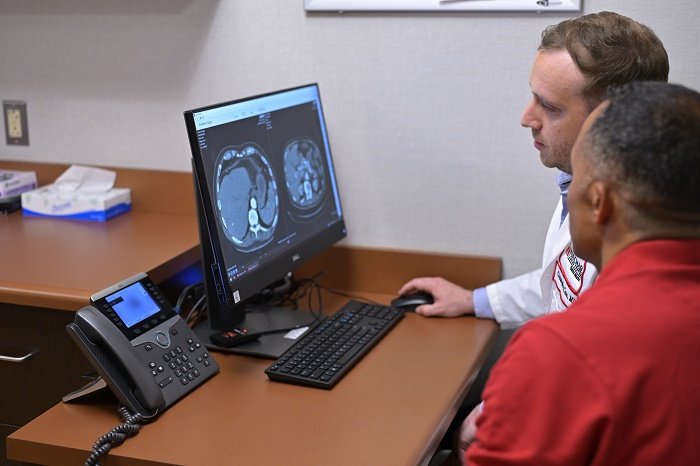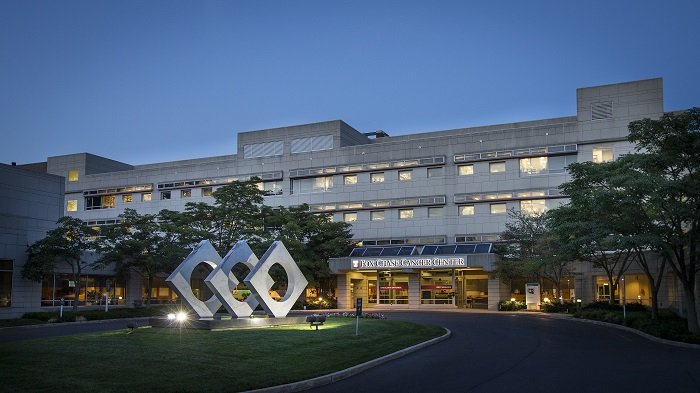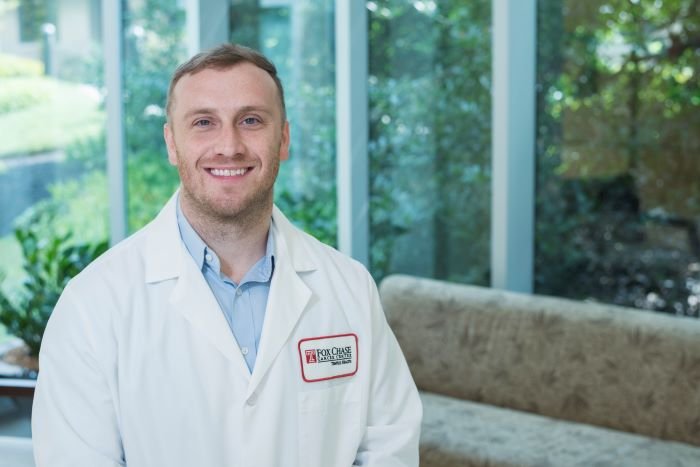The past few years have seen a troubling increase in cancer cases among young adults aged 18 to 40, spanning all types of cancer. While cancer is typically associated with older individuals, studies show that younger adults are now being diagnosed with various cancers including breast, colorectal, leukemia, lymphoma, and more. This surge in diagnoses underscores the critical need for specialized care and resources tailored to this age group.
Colorectal cancer serves as a stark example of this trend. Rates of colorectal cancer in individuals aged 18 to 40 have been steadily rising, with higher mortality rates compared to older adults. For men under 50, colorectal cancer is now the leading cause of cancer-related death, and the second-leading cause for women in the same age group. Despite this increase, younger patients often face delays in diagnosis due to misconceptions about the rarity of cancer in their age bracket.
The reasons behind this rise remain unclear, but experts at Fox Chase Cancer Center suggest that factors like poor diet, increasing obesity, and changes in gut bacteria may be contributing. Regardless of the cause, cancer in young adults poses unique challenges. These patients may experience symptoms later when the disease is more advanced and are often balancing major life milestones such as education, career, or family planning when diagnosed.
A New Program Tailored for Young Adults
Responding to this growing need, Fox Chase Cancer Center has launched its Young Adult Cancer Program, a comprehensive initiative to help young adults confront the challenges of cancer. Dr. Christopher Cann, leading the initiative, aims to address the rising rates of cancer in this younger population, particularly in gastrointestinal cancers.

Provided Courtesy/Fox Chase Cancer Center
Dr. Cann with a patient.
“Cancer in young adults comes with a host of challenges—physically, emotionally, and financially,” said Dr. Cann. “Our goal is to create a support system that addresses those unique needs while providing cutting-edge treatment.”
The program offers services like support groups, psychosocial care, and specialized resources for fertility preservation and financial assistance. A dedicated support group for patients aged 18 to 40 forms a crucial part of the program, fostering a sense of community and enabling patients to share their experiences with others.
Focusing on Fertility Concerns
Fertility preservation is a major concern for young adults facing cancer. Fox Chase has established an oncofertility team to assist patients in preserving their fertility options. The team ensures timely guidance on preservation techniques such as sperm or egg freezing, allowing patients to make informed decisions about their future family plans before treatment begins.
Comprehensive Support Throughout Treatment
In addition to fertility concerns, Fox Chase’s Young Adult Cancer Program emphasizes the importance of psychosocial care. Patients have access to psychiatrists and social workers specializing in the emotional and mental health challenges associated with a cancer diagnosis in young adulthood.

Provided Courtesy/Fox Chase Cancer Center
Fox Chase Cancer Center’s main campus.
Furthermore, the program includes financial counselors to assist young adults in navigating the costs of cancer treatment, as well as a genetics team to determine any hereditary components of the cancer. Family members with genetic predispositions receive counseling and support as well.
Adapting to Patient Needs
As the program evolves, Fox Chase plans to expand based on patient feedback to cater to the needs of this population. The program, initially focused on gastrointestinal cancers, will extend to leukemia, lymphoma, sarcoma, and breast cancer by early 2025, ensuring all young adults diagnosed with cancer benefit from its resources.

Provided Courtesy/Fox Chase Cancer Center
Christopher G. Cann, MD
“We’re continuously assessing the needs of our patients and will adjust the program to meet those demands,” noted Dr. Cann.
The Importance of Early Screening
The increase in young adult cancer diagnoses has led to changes in screening guidelines. For instance, colorectal cancer screenings, once recommended at age 50, are now covered by many insurers starting at age 45. Dr. Cann advocates for ongoing evolution of these guidelines to catch cancers earlier as the number of younger patients diagnosed continues to rise.
As more young adults confront cancer, Fox Chase‘s Young Adult Cancer Program plays a crucial role. By providing age-specific care, support groups, fertility preservation options, and financial and psychosocial resources, the program serves as a model for cancer centers adapting to the evolving needs of younger patients.
If you or a loved one are navigating cancer and in need of support, Fox Chase Cancer Center’s Young Adult Cancer Support program is available. Contact Anjali Albanese at Anjali.Albanese@fccc.edu to learn more.


